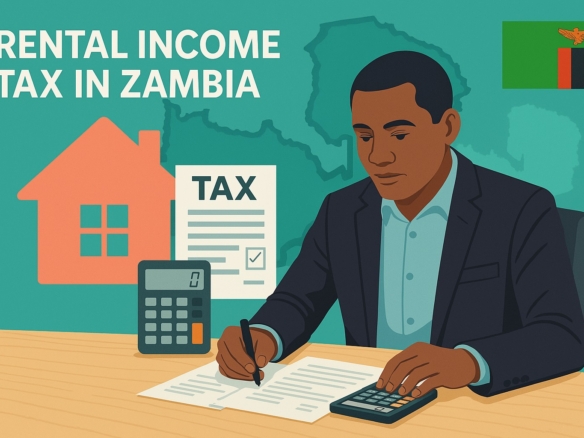Impact of the Property Transfer Tax Amendment on Zambia’s Property Market
The Property Transfer Tax (Amendment) Act, 2024, effective 1st January 2025, introduces notable changes to Zambia’s property market. With the transfer tax rate increased to 8% of the realised value for land transactions, these updates are set to influence property investment and transactions. Here’s a closer look at how this will reshape the property landscape.
What’s New in Property Transfer Tax?
The key amendment is a standardized 8% tax rate for property transfers – vacant or developed land with any developments on it. Additionally, foreclosed properties will now be taxed based on the actual sale price, ensuring fairer valuations for foreclosed property sales. These changes aim to enhance tax collection and valuation accuracy. However, they come with implications for various stakeholders, including those pursuing self-build projects.
How Could This Affect the Property Market?
1. Slower Property Transactions
The increased tax rate raises transaction costs, potentially discouraging property purchases. Buyers, especially in middle-income brackets, may delay investments or seek rental options as an alternative.
2. Pressure on Property Prices
Higher transaction costs could compel sellers to lower prices to attract buyers. This is particularly likely in urban residential markets, where affordability is a critical factor.
3. Increased Costs for Self-Builds
The upward adjustment in transfer tax directly impacts individuals looking to purchase land for self-build projects. Combined with the rising cost of building materials, self-builders face higher overall costs, potentially delaying or downsizing their construction plans. This may also discourage prospective self-builders from entering the market, opting instead for pre-built homes or rentals.
4. Opportunities in Foreclosed Properties
The revised tax rules for foreclosed properties, now based on actual sale prices, provide better pricing transparency. This change could stimulate further activity in the foreclosure market, attracting buyers and investors seeking bargain deals.
5. Investment Strategy Adjustments
Property investors may rethink their strategies, prioritizing rental income or long-term property ownership to minimize transaction taxes. Alternatively, they could explore sectors with lower associated costs.
Opportunities in a Changing Market
While the amendments present challenges, they also open doors for new opportunities:
- Affordable Purchases: Buyers with sufficient capital may find opportunities as sellers reduce prices to attract buyers amidst higher taxes.
- Increased Rental Yields: Landlords stand to benefit from a potential increase in rental demand and potentially higher rental income.
- Transparency in Foreclosure Sales: The clarified valuation for foreclosed properties enhances market trust and encourages participation further.
Tips for Adapting to the Changes
For Buyers:
- Anticipate higher costs and negotiate cost- or tax-sharing arrangements with sellers.
- Consider renting while observing how these changes reshape the market.
For Sellers:
- Review pricing strategies to remain competitive in a higher-tax environment.
- Highlight unique property features to stand out in the market.
- Consider longer payment terms to spread out the payment over time.
For Investors:
- Focus on rental properties or undervalued foreclosed assets for better returns.
- Stay informed about market shifts and opportunities in different parts of the country by signing up for our email list and following our WhatsApp channel.
Balancing Revenue and Market Activity
While the government’s goal is to increase revenue through higher transfer taxes, this approach could reduce market activity if affordability declines significantly. To ensure a balanced outcome, it is our view that policymakers should consider:
- Exemptions for Affordable Housing: Incentives for first-time buyers or affordable housing sectors to encourage accessibility.
- Public Awareness Campaigns: Educating stakeholders about the changes to foster better understanding and compliance.
Final Thoughts
The Property Transfer Tax (Amendment) Act, 2024, represents a significant shift in Zambia’s property market. While the higher tax rate introduces challenges, it also creates opportunities for adaptive buyers, sellers, and investors. By understanding these changes and adjusting strategies, stakeholders can navigate the evolving property landscape effectively.
Looking to buy, sell, or rent property? Contact us today for advice and tailored solutions. Let us help you make the most informed decisions in this changing market.




